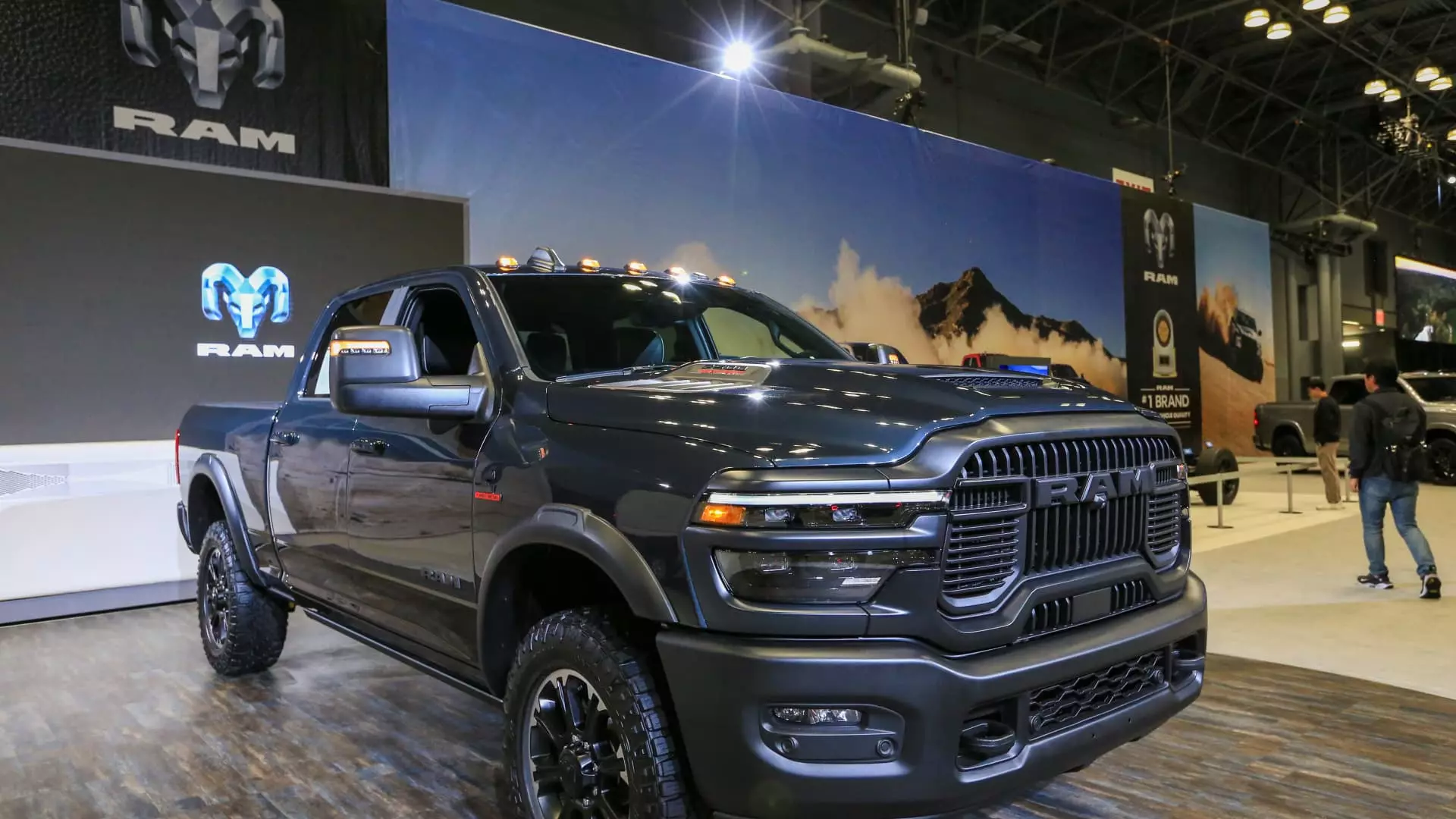In a bold play to reclaim its footing in a fiercely competitive market, Ram Trucks has announced an industry-leading warranty for its 2026 vehicle lineup. Set to unfold as part of a comprehensive 18-month turnaround strategy, the choice to amplify its warranty coverage to 10 years or 100,000 miles is nothing short of audacious, especially in a landscape where customers face rising vehicle costs and prolonged financing periods. This move is more than a mere advertisement tactic; it’s a strategic maneuver designed to resonate deeply with the sentiments of today’s truck buyers, understanding their financial dilemmas and purchasing behaviors.
Ram’s current warranty, stretching over five years or 60,000 miles, falls short when considering that an overwhelming 85% of truck buyers finance their purchases for upwards of seven years. It’s incongruent with the realities of the modern consumer who now keeps their vehicles for an average of 12 years, further exacerbated by the soaring prices in the automotive market. Ram CEO Tim Kuniskis voiced this dissonance starkly when he pointed out that while consumers are investing more in their trucks, the protections surrounding those investments have seen no such evolution.
The Importance of Consumer Trust
Moving to a 10-year warranty isn’t merely about lengthening coverage; it is essentially a testament to Ram’s commitment to consumer trust and satisfaction. In an age when many automotive brands merely follow the industry norm, this warranty sets Ram apart, crafting a narrative of reliability that could resonate with both new buyers and those who may have disengaged from the brand in the past. It reflects a keen understanding of consumer expectation in a time where loan durations have hit dizzying heights—84-month loans increased to a staggering 19.8% this past quarter.
Kuniskis is acutely aware of the hurdles ahead, citing a staggering 38% decline in sales since the brand’s peak performance in 2019. The move to enhance the warranty is not just a splashy marketing ploy; it’s a calculated risk that suggests a bold re-engagement with the customer base, meticulously crafted to lure back drivers who may have been lost amid stagnant offerings and a lack of innovation.
Risks vs. Rewards
Of course, such a shift carries significant risks. Automakers who venture into offering longer warranties are walking a tightrope, balancing consumer expectations with potential financial repercussions if vehicles demonstrate unforeseen quality issues. There is an undeniable weight to Kuniskis’s assertion that the “perceived value from the customer outweighs what our increased cost is going to be.” In essence, Ram is banking its future on the idea that a longer warranty will foster customer loyalty, a calculated gamble that could pay off handsomely if the product substantively delivers on its promises.
What isn’t clear, at least from a distance, is how this offer will change consumer behavior in the long run. Longer warranties could lead to customers holding onto their vehicles longer, which might translate into fewer sales for Ram in the near-term as buyers remain satisfied with their durable trucks. By embracing this initiative, Ram is not simply advertising; it has struck a chord with the emotional aspect of vehicle ownership, transforming a financial arrangement into a long-term partnership.
Competitive Landscape
As Ram positions itself with such a warranty, it is critical to note the competitive landscape. Tremendous pressure comes from established players like Ford, General Motors, and Toyota—all offering more traditional warranties that currently dominate the market. Yet, Ram’s notable departure from the standard guarantees them a chance to carve out a niche for themselves that could challenge the status quo. Whether this innovative approach will yield a true sea change in consumer perception remains to be seen, but the ambition is glaring and the stakes are high.
In a market often marred by sameness, Ram’s strategy could be the fresh wind needed to reshape buyer perceptions. It’s a moment where boldness in automotive marketing meets genuine consumer need, creating an intersection that has the potential to redefine the landscape of vehicle warranties for years to come. The true question that remains is not just whether Ram will succeed—but if they can reshape the conversation around customer value and manufacturer responsibility.


Leave a Reply